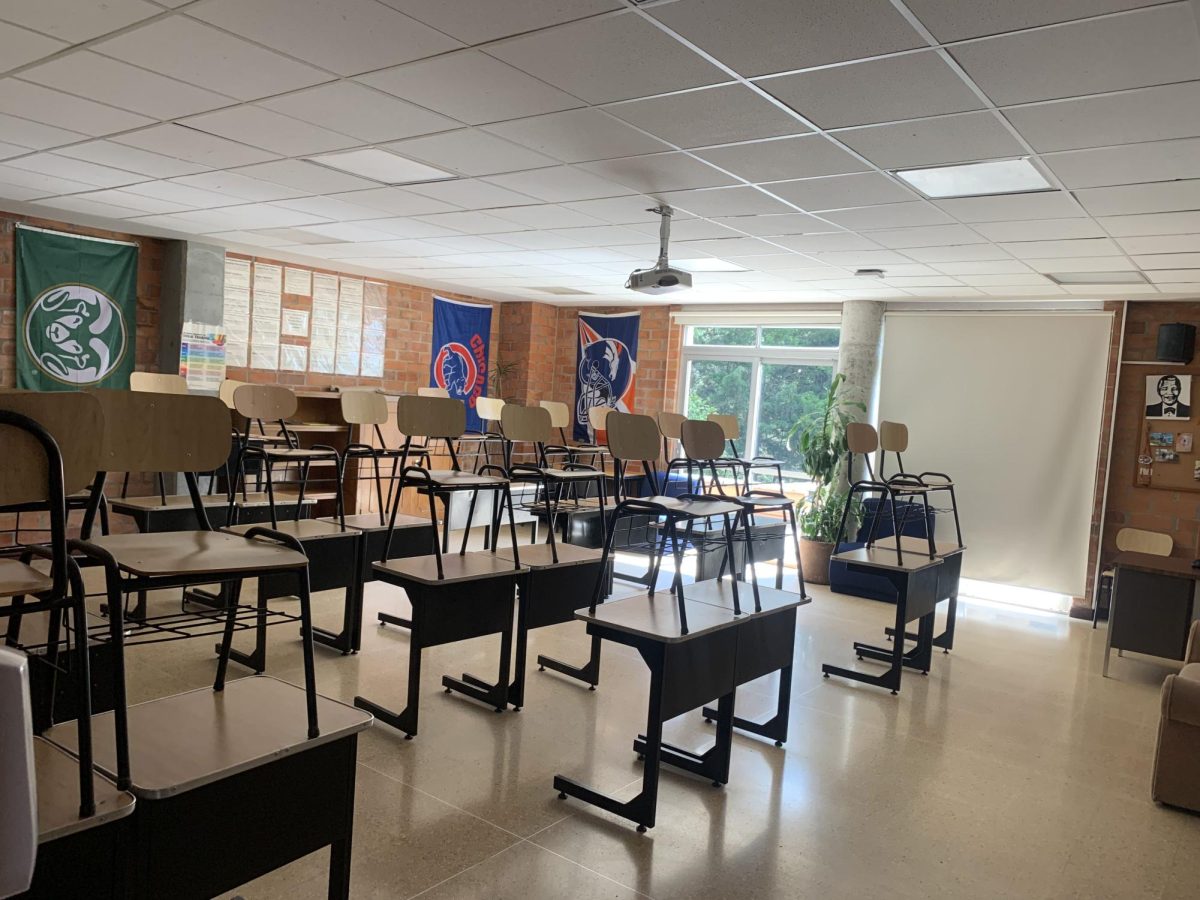AP Human Geography, taught by Brian Summers, is one of the most popular AP courses among grade 10 at TCS. The subject is highly recommended as the chosen optative class for social studies as it qualifies as one of the less rigorous AP classes offered in the curriculum.
The class consists of project-based learning with two main summative assessments in each unit. One consists of the Free Response Question test, focused on around 6 open response sections. The second summative is a project that varies based on the respective unit. Furthermore, other assignments include the Multiple Choice Questions and notes. The main platform used for the class is AP classroom, the official advanced placement website, still, projects are also turned in through schoology
“I would recommend this course to others for two main reasons. The first one is because you are able to understand how an AP class looks like, especially if it’s your first year enrolling into one. The other reason is because you get a better grasp of global patterns and you are able to develop skills like critical thinking and analytical skills that will not only help you during class but for life,” Juliana Arango, Grade 10, said.
The course counts a total of 7 units which include: Thinking Geographically; Population and Migration Patterns and Processes; Cultural Patterns and Processes; Political Patterns and Processes; Agriculture and Rural Land-use Patterns and Processes; Cities and Urban Land-use Patterns and Processes; Industrial and Economic Development Patterns and Processes. Students cover all unit material before Easter break and count with 2-3 weeks of preparation for the AP exam.
“I do believe that this class is relevant to today’s world because we are able to understand systems, distribution and challenges that have led society to function the way that it does,” Arango said.
Summers describes the class as a vital course to understand current global issues and the development, behavior, and movement of humans. The class inquiries topics such as country boundaries, disputes, population phenomena, migration issues, the effect of agricultural practices in society, urban distribution, demographics, etc. The class would be an optimum option for students who seek to study political science.
“More than helping us with the content, I believe that this class has enforced my critical thinking, time management and analytical skills. More than learning some vocabulary words with this AP class I was able to develop tools that will help me understand a system and learn from it,” Arango said.
AP Human Geography would be an ideal option for 10th graders who seek: an introduction to the dynamic of AP courses, a challenge for their academic rigor, and the option of a college credit based on their AP exam score. Although the requirements to enter the class are not strict with no need for teacher recommendations, the ideal student profile for the class is an independent student able to work both within and outside of class and has the initiative to complete their responsibilities.
“This is the easiest of the AP exams. That doesn’t mean it’s easy to get a five. If you study and put in the effort, then you should be scored a four minimum problem,” Summers said.
AP courses demonstrate students challenge themselves. Consequently, the course exam has a high passing rate meaning that with an adequate study schedule, achieving at least a 4 is easier in comparison to other AP classes. The credit for the class would be valuable for students who will study in the US and need an elective, still, Colombian universities now receive the exam as class credit depending on the major.
“I took AP Human in 10th grade and since then have taken as many AP as possible therefore I can confidently say that this AP is a great opportunity to add to your college portfolio since it isn’t the hardest AP to be in since the workload isn’t overwhelming but the universities still see this as a positive item in your profile,” Senior, Sofia Gomez, said.



